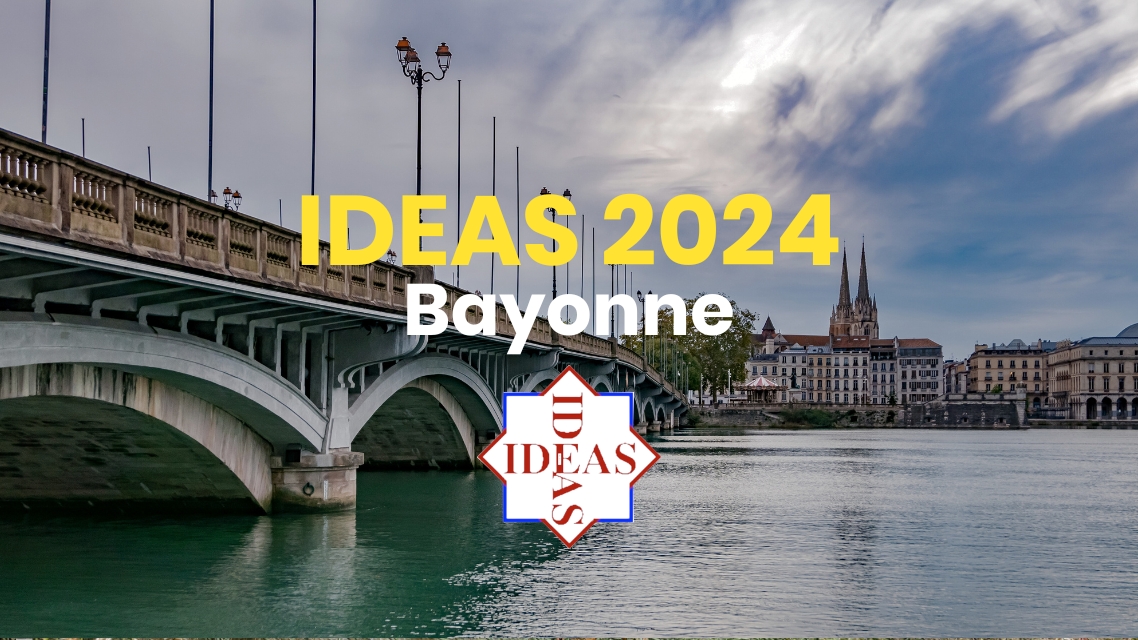Over the course of three engaging days, the IDEAS conference delivered a deep dive into some of the current issues in database research and technology. Stéphane Campinas and I were excited to present our recent research article “Siren Federate: Bridging the Gap between Document and Relational Data Systems for Efficient Exploratory Graph Analysis” (co-authored with Renaud Delbru and soon to be published on Springer’s Lecture Notes in Computer Science) and to moderate the session on “Query Processing and Applications”.
From high-performance computing to entity matching and graph analytics, the event covered a wide spectrum of topics that resonate with our team. Attending IDEAS 2024 was not just enjoyable but uniquely relevant to the work with immediate insights for the challenges we are experiencing at Siren.
A unique element of this year’s IDEAS (International Database Engineered Applications Symposium) was its colocation with ADBIS (European Conference on Advances in Databases and Information Systems), which allowed for an even broader range of discussion. With international attendees from across Europe and beyond, the two conferences fused the worlds of database research. This broader scope, combined with our particular interest in investigative intelligence, made for a more useful and insightful conference experience for the Siren team.
The event wasn’t all business. Held in charming Bayonne, situated in the beautiful Basque region, I personally felt that IDEAS 2024 achieved its goal in blending intellectual rigour with cultural experiences. A series of social opportunities provided a chance to both unwind and connect with the community on a more personal level. On the first evening, we gathered for reception at a local bar, enjoying food, drinks and games. The second night featured the main conference dinner with traditional Basque folk music, and on the final day, we even got to witness a game of Basque pelota, a local sport, during the lunch break. These touches were as valuable as the sessions themselves for the networking and conversations, allowing us to build stronger connections and share ideas within the community.
The keynote speeches were, as always, a highlight. Christian S. Jensen’s keynote on spatio-temporal databases was particularly illuminating for us, given our own work on multi-dimensional joins with Siren Federate v31. Angela Bonifati’s exploration of property graphs also hit home, aligning perfectly with Siren’s vision of enhancing investigative intelligence through graph-based data models. Lastly, Yannis Manolopoulos’ discussion on recommendation systems offered a fresh perspective, even though Siren doesn’t directly work with scholarly datasets. His insights underscored the potential of recommendation systems in uncovering leads, which could have interesting applications for investigative systems.
Our own presentation was a great opportunity for Stéphane to illustrate the software architecture of Federate, the system that we have designed and refined over the past decade and that enables high-performance, large-scale exploratory graph analytics as a back-end to the perhaps better well known Siren Investigate. We anchored our talk in the context of investigative intelligence, highlighting key aspects like the distributed join algorithms, adaptive query planning, and semantic caching, and also addressed questions about sensitive data handling.
In addition to presenting our work, we contributed to the conference organization. In fact, I’ve moderated the “Query Processing and Applications” session, a field in which Siren has proven expertise.
The session featured four speakers, presenting their research on topics such as traffic flow prediction, query optimization, and trajectory similarity detection.
- Marwan Hassani (Eindhoven University of Technology, The Netherlands) presented “Outlier-Weighted Traffic Flow Prediction”.
- Anna Sasak-Okoń (Maria Skłodowska-Curie University in Lublin, Poland) presented “Speculative Query Support for RDBMS with Flexible Query Order and Benefit Verification”.
- Daniel Flachs (University of Mannheim, Germany) presented “Made to Measure: Towards Approximability of Query Evaluation Engines”.
- Finally, Taehoon Kim (Artificial Intelligence Research Centre, National Institute of Advanced Industrial Science and Technology, Tokyo, Japan) presented “DGGS-based Continuous Trajectory Similarity Comparison”.
Each talk sparked interesting discussions with the audience.
“Overall, IDEAS 2024 was a rare convergence of meaningful research and stimulating conversations. It left me with not only new insights into my field but also a renewed sense of direction, confirming that Siren is on the right path in tackling some of the most relevant and enduring challenges in database technology.”
If you have any questions about how we apply this research to our Siren product, get in touch and request a demo today!



